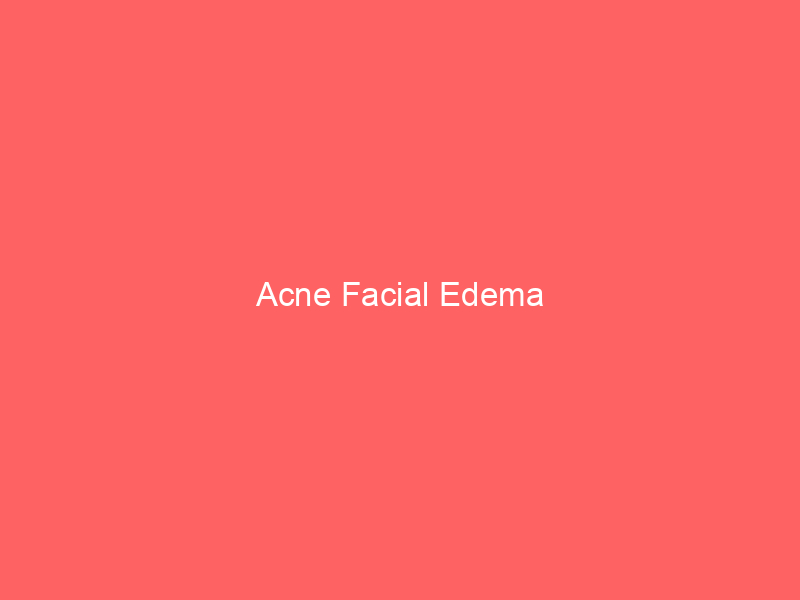
Acne facial edema, also known as facial swelling caused by acne, is a condition in which the skin on the face becomes inflamed and swollen due to the presence of acne characterized by inflammation and swelling in the face, specifically in the areas affected by acne. This can occur as a result of severe or cystic acne, and can cause significant discomfort and embarrassment for those affected.
Causes
This can occur as a result of several factors, including:
- Hormonal fluctuations: Hormones play a big role in the development of acne, and fluctuations in hormones can lead to increased sebum production, clogged pores, and inflammation.
- Bacterial overgrowth: The presence of the bacteria Propionibacterium acnes (P. acnes) can lead to inflammation and swelling in the skin.
- Chronic inflammation: When acne is not treated properly, the inflammation can become chronic and lead to facial edema.
- Medications: Certain medications, such as corticosteroids, can cause facial swelling as a side effect.
- Allergies: Some people may develop an allergic reaction to skincare products, resulting in facial edema.
Symptoms
Symptoms of acne facial edema may include:
- Swelling and puffiness in the face, particularly in the cheeks and around the eyes
- Redness and warmth to the touch
- Tenderness or pain in the affected areas
- A feeling of tightness or fullness in the face
- Difficulty moving the face or opening the mouth
In severe cases, acne facial edema may also cause difficulty breathing or swallowing, and may require medical attention.
It’s important to note that acne facial edema is not a common complication of acne, and it’s usually caused by an infection or an allergic reaction to acne medication. It’s recommended to see a dermatologist for proper diagnosis and treatment.
Diagnosis
Diagnosis of acne facial edema is typically made by a dermatologist through a physical examination of the skin. The dermatologist may also ask about the patient’s medical history, including any medications they are taking and their current skincare routine.
To confirm the diagnosis, the dermatologist may take a skin scraping or biopsy. This can help to rule out other skin conditions that may be causing the facial edema, such as rosacea or an allergic reaction.
Treatment
The standard treatment plan for acne facial edema includes a combination of topical and oral medications. Topical medications such as retinoids, benzoyl peroxide, and salicylic acid can help to reduce inflammation and unclog pores. Oral antibiotics, such as tetracyclines or doxycycline, may also be prescribed to help reduce inflammation and prevent bacterial growth.
In addition to medication, lifestyle changes can also help to improve acne facial edema. These include maintaining a healthy diet, avoiding excessive sun exposure, and practicing good skincare habits, such as cleansing the face twice a day and avoiding heavy makeup.
In severe cases, corticosteroid injections may be used to reduce inflammation and improve the appearance of the skin. However, this should only be done under the guidance of a dermatologist and for a short period of time.
It’s important to work with a dermatologist to create a personalized treatment plan that addresses your specific needs. With proper treatment and management, the symptoms of acne facial edema can be improved, and the risk of scarring can be reduced.




 Shop From Rxharun..
About Us...
Editorial Board Members..
Developers Team...
Team Rxharun.
Shop From Rxharun..
About Us...
Editorial Board Members..
Developers Team...
Team Rxharun.